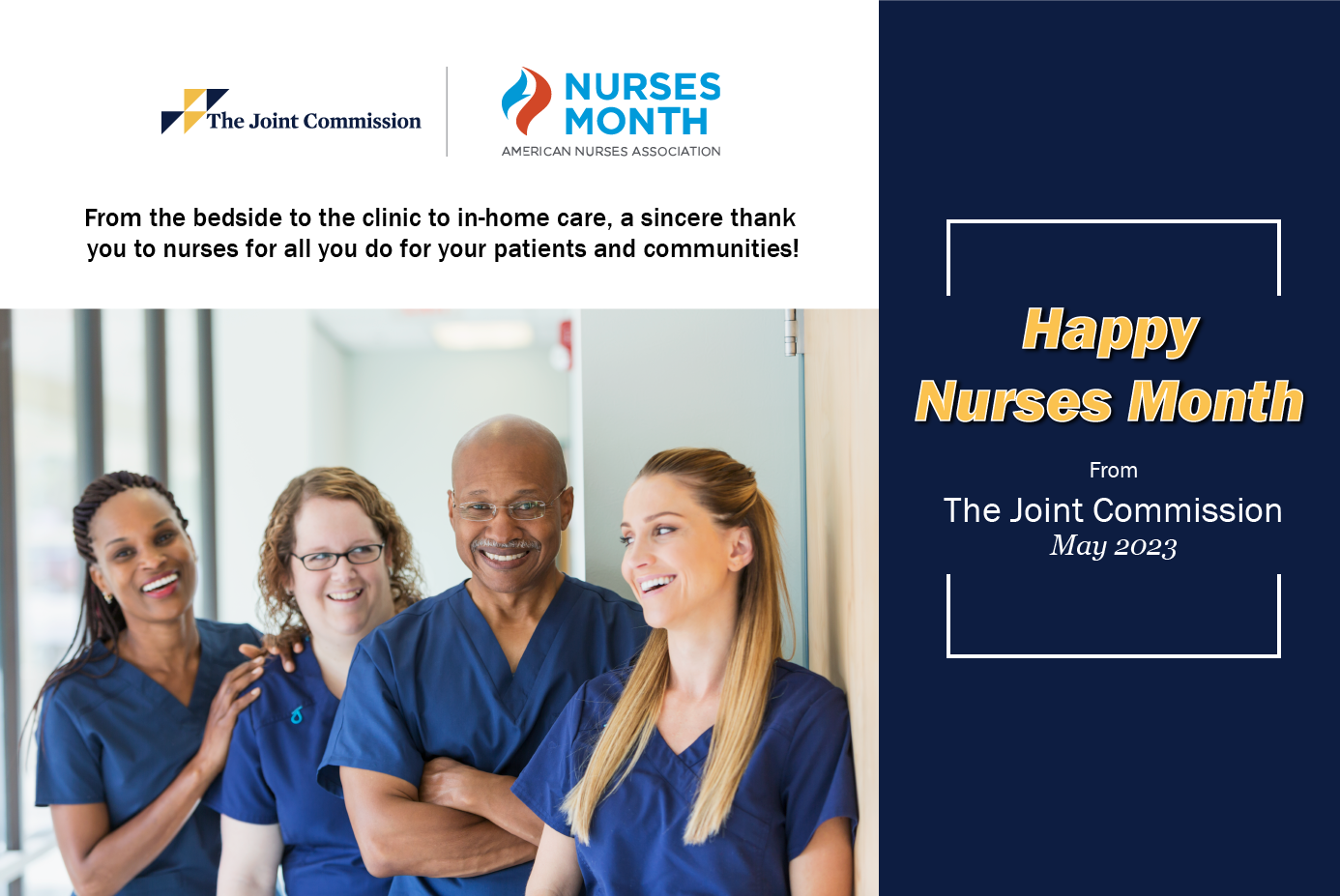By Lisa DiBlasi Moorehead, EdD, MSN, RN, CENP, CPPS, CJCP, Field Director, Psychiatric Hospital Accreditation Program
As we celebrate nursing this National Nurses Month, let us also celebrate the role of the nurse in improving safety and quality of care.
Nurses are uniquely prepared to take the lead in this role. With more than 3 million working nurses in the United States, we make up the largest segment of healthcare workers, and we provide the majority of direct patient care. Nurses are knowledgeable on the needs and expectations of individual patients as well as communities. We understand pathophysiology and the effects of medications, treatments and procedures. We perform ongoing assessments and coordinate care among members of the team to ensure patients get the care they need.
Nurses also serve as patient advocates. According to the American Nurses Association (ANA), advocacy is a pillar of nursing. Couple the role of advocate with a common (and simplified) definition of nursing as doing for others what they cannot do for themselves, nurses truly are in a unique position to promote safety and improve care.
Role in Preventing Adverse Events
Often, it is a nurse who stands between a patient and a severe safety event. Nurses speak up when something is not right, preventing harm from occurring or worsening.
We know from sentinel events reported to The Joint Commission that common root causes of serious safety incidents are:
- Human factors
- Misses in assessments
- Breakdowns in communication
Human factors are rooted in the acknowledgement that humans make mistakes. Since nurses provide the most direct care, we know where there are risks within care delivery systems, what works, what doesn’t, and workarounds that may save time but can increase risk. Nurses have the knowledge to create safer systems that account for these human factors to help all members of the healthcare team provide safer, higher quality care.
Assessments are critical in determining patient responses to treatment, and planned care is modified as a result. Because nurses spend the most time with patients, we are often the first to notice subtle changes in patient condition and can take quick action to prevent an emergency. Through thorough and insightful assessment, nurses contribute to improved outcomes for patients.
Communication is vital – especially during transitions in care and discharge. Communication error is a leading cause of Joint Commission reported sentinel events, leading to increased morbidity and mortality – what nurses have to say can mean the difference between life and death for patients. Nurses use tools such as SBAR (Situation, Background, Assessment, Recommendation), read-back and teach-back to assure messages are received accurately and acted upon, reducing the risk for communication errors.
Nurses play a vital role in helping The Joint Commission achieve its vision – that all people always experience the safest, highest quality, best-value healthcare across all settings. This month, and every month, let’s recognize nurses for their role in helping us achieve this vision.
Dr. Lisa DiBlasi Moorehead is currently a Field Director for the Psychiatric Hospital Accreditation Program. Previously, they served as a Surveyor in the Hospital Accreditation Program, a Field Director for the Hospital, Critical Access Hospital and Nursing Care Center Accreditation Programs, and as Associate Nurse Executive. Prior to joining The Joint Commission, Dr. DiBlasi Moorehead was responsible for accreditation and regulatory compliance and related performance improvement activities for individual hospitals and health systems. They have also held leadership positions in nursing, advanced practice and education among others during over 40 years in healthcare. Dr. DiBlasi Moorehead has held certifications in critical care nursing, healthcare quality, and as a clinical nurse specialist. They are currently certified as an executive in nursing practice, a professional in patient safety, and as a Joint Commission professional. They are licensed as a registered nurse in Alabama.



